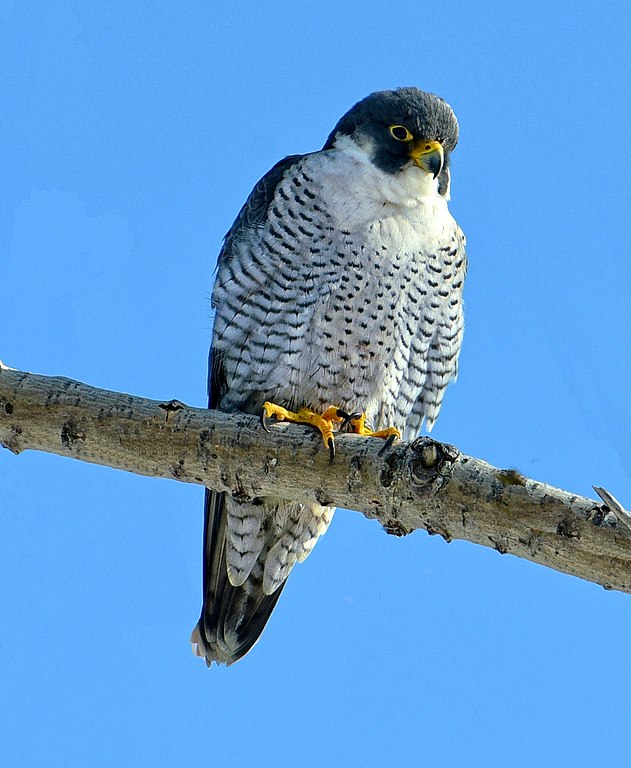Watch a BBC video of the world’s fastest bird, the Peregrine falcon.
The world’s fastest bird
So far, no bird is known to match the flying speed of a Peregrine falcon in its hunting dive. The Peregrine falcon is the fastest bird – and in fact the fastest animal on Earth – when in a dive. As it executes this dive, the Peregrine falcon soars to a great height, then dives steeply at speeds of up to 240 miles (386 km) per hour. The video above gives you an idea of how fast this is, as seen from the falcon’s point of view.
The Peregrine falcon’s diving speed is amazing. And yet, this bird doesn’t make the top 10 when traveling in level flight. Studies have clocked an Indian bird, the spine-tailed swift, at over 100 miles (160 km) per hour. Visit The Travel Almanac to see more of the world’s fastest birds while traveling at level flight.

The flight of the average bird
What about other birds? Scientists who’ve tracked birds with Doppler radar say most birds cruise along at somewhere around 25 miles (40 km) an hour. But ducks and other waterfowl often fly twice that fast. So do racing pigeons. A headwind or tailwind will change a bird’s speed. Also, birds fly faster when they’re chasing prey or escaping a predator.
By the way, the Guinness Book of World Records – an obvious source for the answer to questions like “What’s the world’s fastest bird?” – came into existence because of an argument about the fastest game bird in Europe. In 1951, Sir Hugh Beaver, the managing director of Guinness Breweries, was in southeastern Ireland with a group of friends, enjoying a day’s shooting. Failing to shoot a golden plover, Sir Hugh maintained that this must be the world’s fastest flying game bird. His companions disagreed. Sir Hugh used his own fortune to research the question, and that’s how the Guinness World records got started.
Bottom line: The Peregrine falcon is the world’s fastest bird – when in a hunting dive – and the world’s fastest animal. See a video from the BBC.











